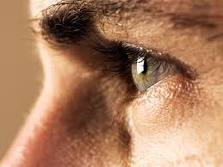Defective vision is defined as the inability to see things clearly due to physical problems with the eye. There are many reasons one may suffer from this malady, including genetic predisposition, physical injury, or even mental issues.
Over 150,000 people in the U.S. alone suffer from some form of bad vision, although many cases go undiagnosed or untreated. Easy to determine through a visit to an Optometrist or Ophthalmologist, vision problems are one of the leading sources of income for pharmaceutical companies through the sale of contacts, glasses, eye drops, and other similar products.

There are relatively few home remedies for defective vision once it has occurred in an individual, but fortunately, there are many things you can do now to prevent defective vision from developing. Take precautions now to help salvage your remaining vision and help keep your eyes as healthy as possible.
Alternative Names
Defective vision is known by many other terms, including “bad vision”, “bad eyes”, “blindness”, or “partial blindness.” Many people with bad vision refer to themselves as being “blind as a bat.” Defective vision is also classified by the type of eye disease or problem it stems from. These categories include:
Presbyopia: Defined as a difficulty focusing on objects that are close. Often affects people over the age of 40.
Cataracts: Common in elderly patients, usually defined by halos at night, cloudiness over the eye, poor night vision, blind spots, and poor peripheral vision.
Defective Vision? Get Remedies Fast!
Macular Degeneration: Common in those over 60, this includes general poor vision, wavy lines when reading, and appearance of faded colors.
Retinal Detachment: Causes by the retina detaching from the cornea, this is a serious eye disease defined by tiny particles floating across the eye, flashes of light or sensations of shade. This is a highly dangerous disorder and should be treated by a doctor immediately.
Optic Neuritis: Caused by inflammation of the optic nerve, which can come from infection or as a side effect of multiple sclerosis.
Nearsightedness: One of the most common forms of defective vision, this includes the inability to see things far away. Many people who use glasses or contacts suffer from nearsightedness.
Farsightedness: Similar to nearsightedness, this category includes people who have difficulty seeing things that are near to their eyes.
Astigmatism: Caused by an unusual curvature of the cornea, this eye disease supplants itself through blurry and unclear vision and is particularly difficult to correct with corrective eye products and lenses.
Symptoms
There are many symptoms of defective vision, some more serious than others. While most of these symptoms can apply to any or all of the typical eye diseases listed above, some of the symptoms only manifest themselves in cases of serious eye disorders and should mean an immediate visit to the doctor or emergency room.
Symptoms of eye defects include blurred vision, trouble reading small print, wavy vision, or temporary or permanent blind spots. Some people suffer from halos, which occur when things in the line of vision appear to have halos of light surrounding them. Other people suffer from sudden flashes of light or sensations of a window shade being pulled over their eyes.
Floaters are a symptom that makes patients think that there are tiny particles floating near their eyes. Eye pain is one of the more worrisome symptoms of eye defects and should be treated seriously. Eye pain that is severe could be a sign of detached retinas, corneal disease, or even a serious eye infection that could lead blindness.
Other symptoms of eye defects include watery eyes, itchy eyes, a heaviness of the eyelids, or a mild headache that is felt in the back of the eye cavity.
Causes
Different eye diseases and defects are caused by different things. The most common cause of any vision or eye defect known is genetics. Doctors have found sufficient links between heredity and poor vision, and it appears that people are more likely to have bad vision if their parents or other family members do as well.
Other causes of classic poor vision include sitting too close to a television or computer screen for extended periods of time, continually reading in a dim or inconsistent light, or lack of blinking that leads to eye dryness. Mental strain and stress can also lead to eye defects.
Eye infections can be a serious but preventable cause of eye defects, and should be avoided by taking careful care to wash and clean eyes thoroughly after contact with bacteria. Other than situations in which your eye touches something foreign, washing should be avoided as tears and eyelids provide a natural source of protection from the elements.
Another of the main causes of eye problems is age. Aging takes a toll on all different parts of the body, and the eyes are no exception. Over 85% of American adults will experience some sort of defective vision at some point in their lives, many of them not until after age 60. As we age, our corneas and retinas become weaker and more prone to disease, and the other functions of the eyes also become harder for our bodies to carry out. Unfortunately, the older you are, the more likely it is that you will experience some sort of decrease in visual capability over time.
Risk Factors
There are some risk factors that can be pinpointed as pre-cursors to eye defects. The primary risk factor is a genetic or family history of poor vision, as this is one of the most sure-fire ways to predict future eye problems.
Unfortunately, this risk factor has no cure or prevention method. Other risk factors include sensitivity to light or a predisposition to eye infections, as both of these issues indicate a lowered immunity of the eye. Anyone who finds themselves using a computer for multiple hours a day, focusing in dim light often, or reading excessive amount also may be at risk to develop eye defects.
Prevention Tips
Many of the reasons people develop eye issues cannot be helped or prevented as they are products of genetic history or physical imperfections that accumulate over time. There are, however, ways you can invest in the continued health of your eyes, which makes it far less likely that you will develop defective vision later in life.

Some of the things you can do now to better protect your eyes for the future include ingesting some sort of Vitamin C every day, as well as Keratin, both of which are known to have positive effects on eyesight and eye health. Carrots and other fruit and vegetables contain high amounts of vitamins and nutrients that are important for visual health.
Another way you can protect your eyes is to always wear sunglasses and protective headwear, such as hats, when outside in the sun. The suns UVA and UVB rays are as harmful to eye health as they are to skin health, and should be avoided if possible. Eyeballs and the delicate parts of the inner eye are susceptible to burns from the sun just like other parts of your body.
Testing and Diagnosing
If you suspect you have some sort of defective vision, you should visit an Ophthalmologist or Optometrist for a complete eye evaluation. They will be able to tell not only if you have a vision defect, but if so, what type of treatment options are available to you.
One of the most common ways doctors test for poor vision is through a standard eye test. This usually consists of the patient reading a series of progressively smaller numbers or letters off of an eye chart.
Eye doctors also have special chairs designed to test the effectiveness of different degrees of lenses on your vision. These tests usually only take a few minutes and are often covered by health insurance. Most people find that it is a good idea for them to have their eyes checked by a doctor once a year.
Treatment Options
Herbal and At Home Remedies
There are no proven home remedies for defective vision. As previously discussed, there are many things one can do ahead of time to stave off or prevent future eye problems, but outside of visiting a doctor, there are few options for finding vision correction options.
If you believe you have acquired defective vision of some sort and wish to treat it at home first, try closing your eyes for long period throughout the day, or wearing an eye patch over one eye at a time. If dryness seems to be causing you distress, try to blink more frequently throughout the day to keep your eyes better moistened.
Pharmaceutical Remedies
Many people find the solutions they are looking for at the neighborhood pharmacy. While generally not as effective as those methods prescribed by an actual eye doctor, here are some of the options available for eye health at the drug store:
- Eye Drops – Oftentimes wetting or anti-histamine drops can solve a variety of eye issues that lead to decreased vision. Most pharmacies sell saline drops, a hygienic combination of water and sodium, that are meant to wet the eye. Try these drops if your symptoms seem to be more physical than internal.
- Over the Counter Glasses – Most pharmacies sell low-level prescription glasses that are meant to help with reading and various degrees of nearsightedness or farsightedness. These glasses are usually inexpensive and serve as a temporary correction for the symptoms and frustrations of mildly bad vision.
- Contacts – Once only sold in the hard variety, contacts are now available in soft, daily, and disposable form. Contacts are small prescription lenses that sit directly on top of the eye and correct defective vision. Some people find contacts uncomfortable while some people would have a hard time functioning daily without them. Contacts can only be prescribed by a doctor and require a great deal of care and hygienic maintenance.
- Glasses – If contacts are not an option, try glasses prescribed by a doctor. Glasses consist of prescription lenses, held together by plastic or metal, that rest on the bride of the nose and are supported by legs that sit over the ears. Many people find glasses uncomfortable or unfashionable, but they are one of the oldest and most trusted remedies for defective vision and can accommodate most types of poor vision. Even astigmatism, which is often untreatable through contacts, can be corrected by glasses.
Surgical Remedies
More popular in the last two decades, eye surgeries are becoming the wave of the future in eye health solutions. These surgeries are highly specialized and dangerous if not performed correctly, so make sure to visit a certified and experienced surgeon for all your eye surgery needs.
LASIK surgery is the most common vision corrective surgery on the market and works through the cutting of the cornea by a laser. The eye cells then re-grow a new layer which is not defective and this solves the vision problem. Other options besides LASIK include PK and Epi-LASIK, both forms of surgery designed to deal with issues such as thin corneas or dethatched retinas. Surgery is a recovery-intensive and expensive option, and should only be considered after much research and talks with a doctor.

2 Comments
my eye power was -0.25 but now it is 0.5,i can not read without glasses but i m not comfortable with the glass to wear.please guide me what to do.Any herbal remedy or any medicine to eat.
I have a problem in my eye sight that i can not see good far object without spectical . My eye sight problem numbers are -4& -3.9
please tell me some madicine